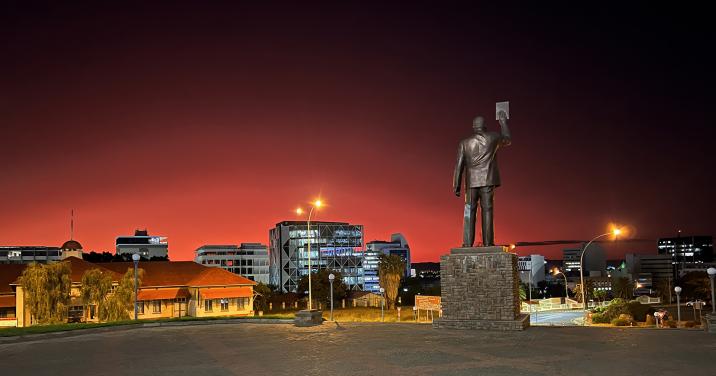The Urban Question in Namibia: a Bibliography

The urban question in Namibia remains a neglected field of inquiry. Much of the research in Namibia focuses on agricultural, “natural”, and other processes taking place is less-inhabited places. The perception that most of the country is “nature” is also a mental conception produced through the legacies of colonisation and apartheid. Today, however, most of those living in Namibia find themselves living in one of the 57 proclaimed urban areas; and projections indicate this will raise up to 70% in the coming three decades. The country is furthermore expanding infrastructural works nationwide, registering land rights in so-called “communal areas”, parcelling the sea for exploration licenses, and strengthening its framework for airwaves and transmission. In other words, the territory as a whole seems to be gradually incorporating to the national, regional and planetary processes. It is therefore a crucial time to take stock of what has been written so far, and doing so in an analytical way to trace the patterns that this field presents.
This urban blibliography is a thorough effort to trace the available references in this field. In partnership with NUST Libraries, an online database with many of these references is currently being developed. This will be uploaded to this page in due course.
DOWNLOAD THE FULL DOCUMENT HERE
Download the introduction by the author, Ms Elsemi Olwage
Download the bilbiography with the table of contents
---
Acknowledgments
The main author is Ms Elsemi Olwage. This bibliography was created in the context of a grant agreement between the Namibia University of Science and Technology (NUST) and the German Cooperating Agency (Deutsche Gesellschaft fur Internationale Zusammenarbeit (GIZ)) on “sustainable and inclusive urban development”. The implementation of this agreement is facilitated by the Integrated Land Management Institute (ILMI) at NUST. The Grant Agreement supports a set of activities, including to “initiate an applied research programme”. In this context, the compilation of the bibliography benefited greatly from much support and collaboration. Research and technical support in creating the bibliography were provided by Mersiana Shatyohamba, the project assistant. Conceptual, administrative, and coordinating support were provided by the ILMI staff, specifically the Land, Livelihoods and Housing Programme Coordinator, Dr Guillermo Delgado, and the Administrative Assistant, Emorgen Jansen. Sylvia Umana, the Senior Library Assistant at the NUST Library’s Digital Collections, took on the vital task of creating and establishing the digital repository (ongoing). And lastly, Mario Siukuta, a student assistant, aided during a one-day workshop that took place in the context of this project.
